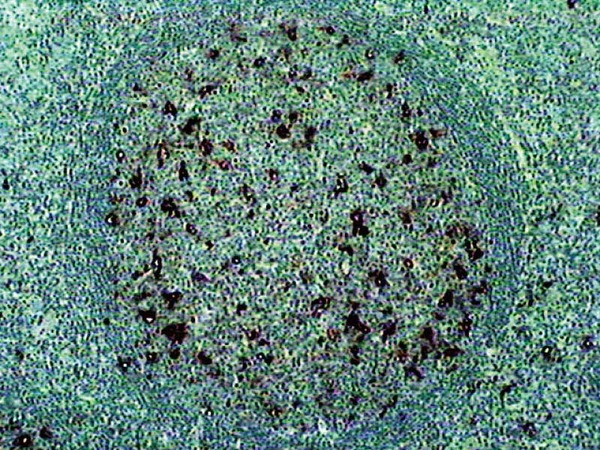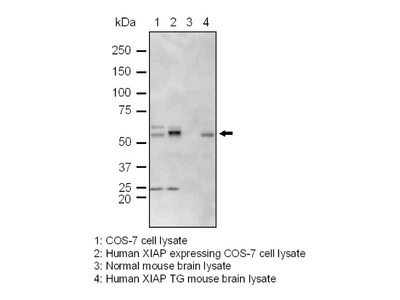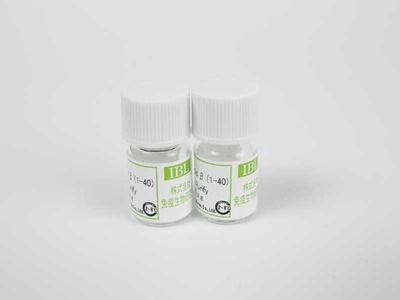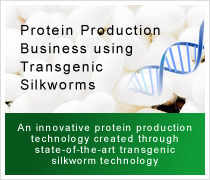- HOME >
- For Researchers >
- Product Search >
- Search Result >
- #18731 Anti- Single Stranded DNA (ssDNA) Rabbit IgG Affinity Purify
Product Search
#18731 Anti- Single Stranded DNA (ssDNA) Rabbit IgG Affinity Purify
- Intended Use:
- Research reagents
- Application:
- IHC
- Package Size1:
- 50 μg
- Note on Application Abbreviations
- IHC:Immunohistochemistry
※ The product indicated as "Research reagents" in the column Intended Use cannot be used
for diagnostic nor any medical purpose.
※ The datasheet listed on this page is sample only. Please refer to the datasheet
enclosed in the product purchased before use.
Product Overview
Product Overview
| Product Code | 18731 |
|---|---|
| Product Name | Anti- Single Stranded DNA (ssDNA) Rabbit IgG Affinity Purify |
| Intended Use | Research reagents |
| Application | IHC |
| Immunizing antigen | Bovine single stranded DNA fragments |
| Purification Method | Purified with antigen |
| Specificity | Can react with random sequenced single DNA of all species not only of human. |
| Package Form | Lyophilized product from 1 % BSA in PBS containing 0.05 %NaN3 |
| Storage Condition | 2 - 8℃ |
| Poisonous and Deleterious Substances | Applicable |
| Cartagena | Not Applicable |
| Package Size 1 | 50 μg |
| Remarks1 | The commercial use of products without our permission is prohibited. Please make sure to contact us and obtain permission. |
Product Description
Product Description
Apoptosis, or programmed cell death, is a highly conserved biochemical mechanism that allows cells to die in a controlled and organized manner. This death process is essential for normal cellular differentiation and tissue homeostasis within multi-cellular organisms. The antibody can react with single stranded DNA, which produced on the process of nuclear fragmentation in apoptosis. In compare to TUNEL method, the immunohistochemical method using the antibody can be easily detects positive cells on apoptosis.
References
References
- Role of IL13RA2 in Sunitinib Resistance in Clear Cell Renal Cell Carcinoma. Shibasaki N et al. PLoS One. 2015 Jun 26;10(6):e0130980.PMID: 26114873
- Effects of glucocorticoid treatment on beta and alpha cell mass in Japanese adults with and without diabetes. Sato S et al. Diabetes. 2015 Apr 16. pii: db150151.PMID: 25883114
- Blood pressure, renal biochemical parameters and histopathology in an original rat model of essential hypertension (SHRSP/Kpo strain). Kato T et al. Biomed Res. 2015;36(3):169-77.PMID: 26106046
- Type 2 diabetes reduces the proliferation and survival of oligodendrocyte progenitor cells in ishchemic white matter lesions. Yatomi Y et al. Neuroscience. 2015 Mar 19;289:214-23.PMID: 25592431
- Unpredictable chronic stress-induced reproductive suppression associated with the decrease of kisspeptin immunoreactivity in male mice. Hirano T et al. J Vet Med Sci. 2014 Sep;76(9):1201-8.PMID: 24871549
- Mitochondrial transcription factor a worsens the clinical course of patients with pancreatic cancer through inhibition of apoptosis of cancer cells. Yamauchi M et al. Pancreas. 2014 Apr;43(3):405-10.PMID: 24622070
- Mutant WDR36 directly affects axon growth of retinal ganglion cells leading to progressive retinal degeneration in mice. Chi ZL et al. Hum Mol Genet. 2010 Oct 1;19(19):3806-15.PMID: 20631153
- NUDT16 and ITPA play a dual protective role in maintaining chromosome stability and cell growth by eliminating dIDP/IDP and dITP/ITP from nucleotide pools in mammals. Abolhassani N et al. Nucleic Acids Res. 2010 May;38(9):2891-903.PMID: 20081199
- Two Distinct Pathways of Cell Death Triggered by Oxidative Damage to Nuclear and Mitochondrial DNAs. Oka S et al. EMBO J. 2008 Jan 23;27(2):421-32.PMID: 18188152
Note: Retrieve by PMID number in displayed by abstract: http://www.ncbi.nlm.nih.gov
FAQ
FAQ
-
 Q.It seems like this antibody can detect apotosis cells, but does it also positively react to other stage of cells such as mitotic period phase cells or ischemia-induced dead cells?
Q.It seems like this antibody can detect apotosis cells, but does it also positively react to other stage of cells such as mitotic period phase cells or ischemia-induced dead cells? -
 A.We consider that it does only detect apotosis cells due to its specificity.
A.We consider that it does only detect apotosis cells due to its specificity.























